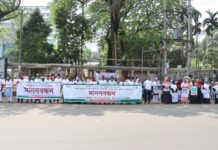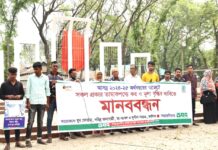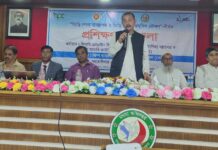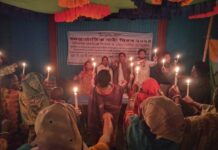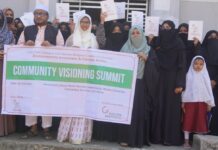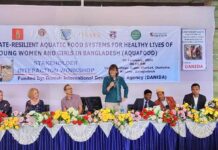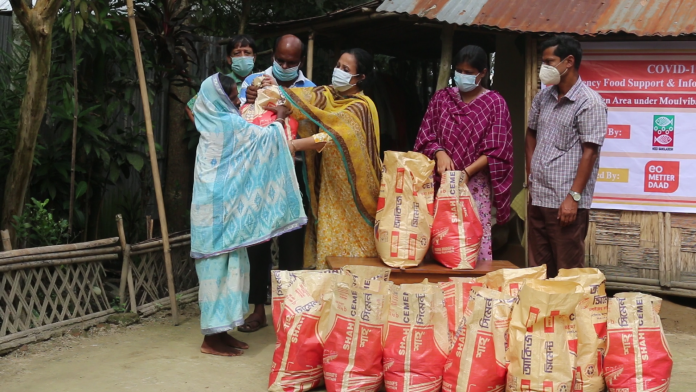
Moulvibazar Correspondent, Dailynewsun
Heed Bangladesh has distributed food items among over 300 tea plantation workers, leprosy-affected people and distressed families in various tea gardens in Moulvibazar and Habiganj districts.
The food items– 10kg rice, 1kg lentil, 1kg salt, 1kg salt, 1kg flour and 1kg oil in each package, were distributed in Srimangal, Kamalganj, Kulaura, Juri and Sadar upazila in Moulvibazar district and Madhabpur, Chunarughat upazila in Habiganj district.
Food distribution activities in different gardens were started on November 1 and went on until November 10. The programme was supported by The Leprosy Mission Netherlands and The Leprosy Mission International-Bangladesh (TLMI-B).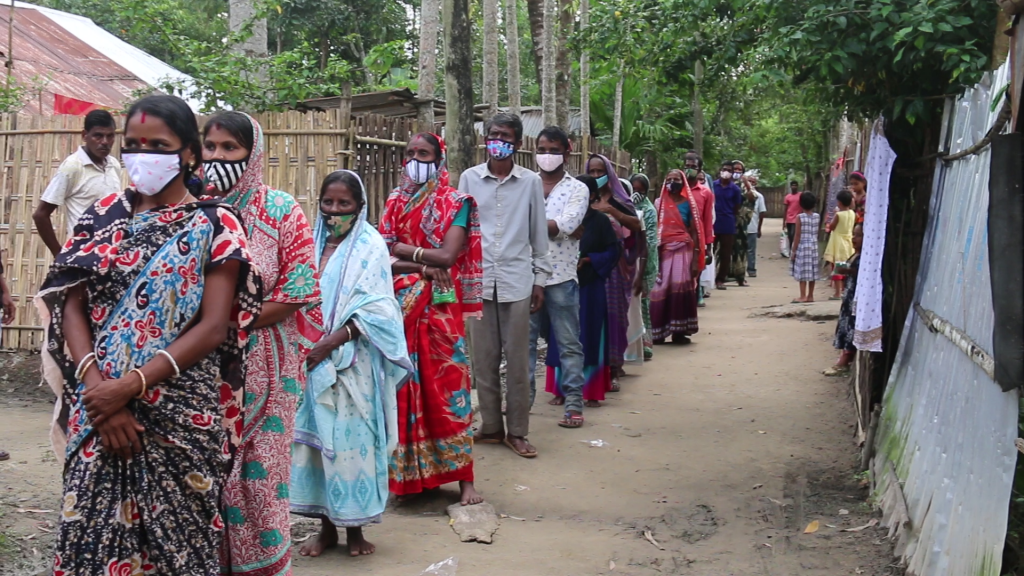
TLMI-B Programme Support Coordinator Jiptha Boiragee, Project Manager Masuma Parvin, Physiotherapist Paresh Debnath, Heed Bangladesh including other staffs of TLMI-B and its partner organization Heed Bangladesh were present at the food distribution event.
Tea plantation workers in the region said still they have been struggling hard to recover the scars left by the COVID-19 Pandemic during the last seven months.
According to tea plantation workers, they suffered from severe food crises during the pandemic. Food supply from outside remained totally stopped while the available food prices skyrocketed in the region which was beyond the capability of tea plantation workers.
Some families had to take only a single meal a day and many people sold out their valuables including livestock for survival while some people took loans on high interest from local lenders, they added. 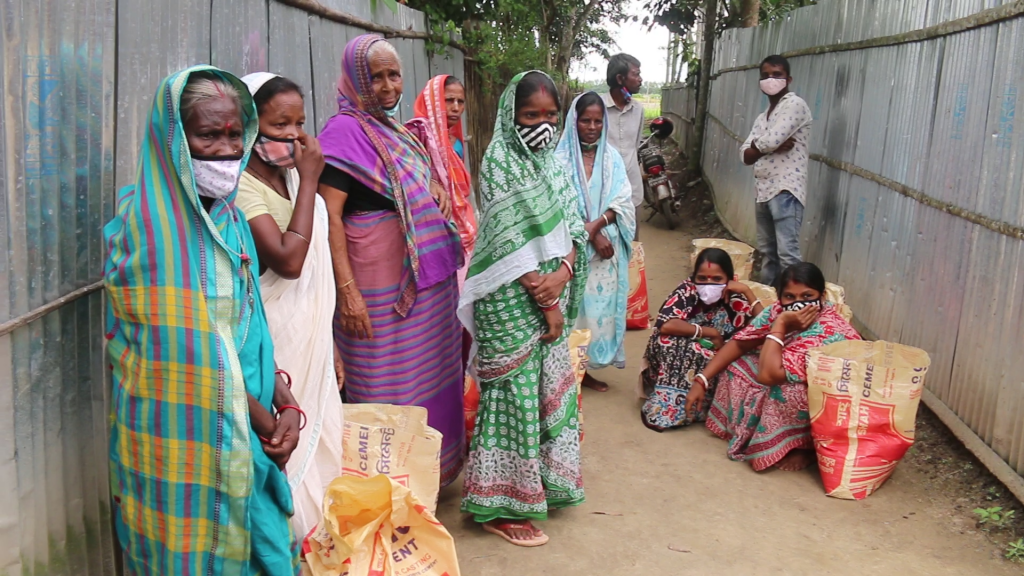
The little income (Tk 108/$1.2 for a full day working) was not sufficient to afford food for the whole family. Tea workers explained the nightmare.
According to local sources, 13 people were infected by Coronavirus and one died of Covir-19 infection at Patrakhola Tea Garden in Kamalganj upazila in Moulbhibazar.
Meanwhile, 14 people were infected in Shamnagar area in Kamalganj upazila, said Pastor Joseph, Nazareth Telugu Baptist Church.
“I was also infected by Covid-19 and hospitalized but recovered eventually,” said Pastor Joseph adding that outsiders brought the virus in the tea gardens.
Masuma Parvin, Project Manager, TLMI-B, said tea plantatioin workers suffered most during the pandemic as the food supply stopped due to lockdown and movement restriction.
Jiptha Boiragee, Programme Support Coordinator, TLMI-B, said still tea workers have been struggling to recover the financial loss due to the pandemic. 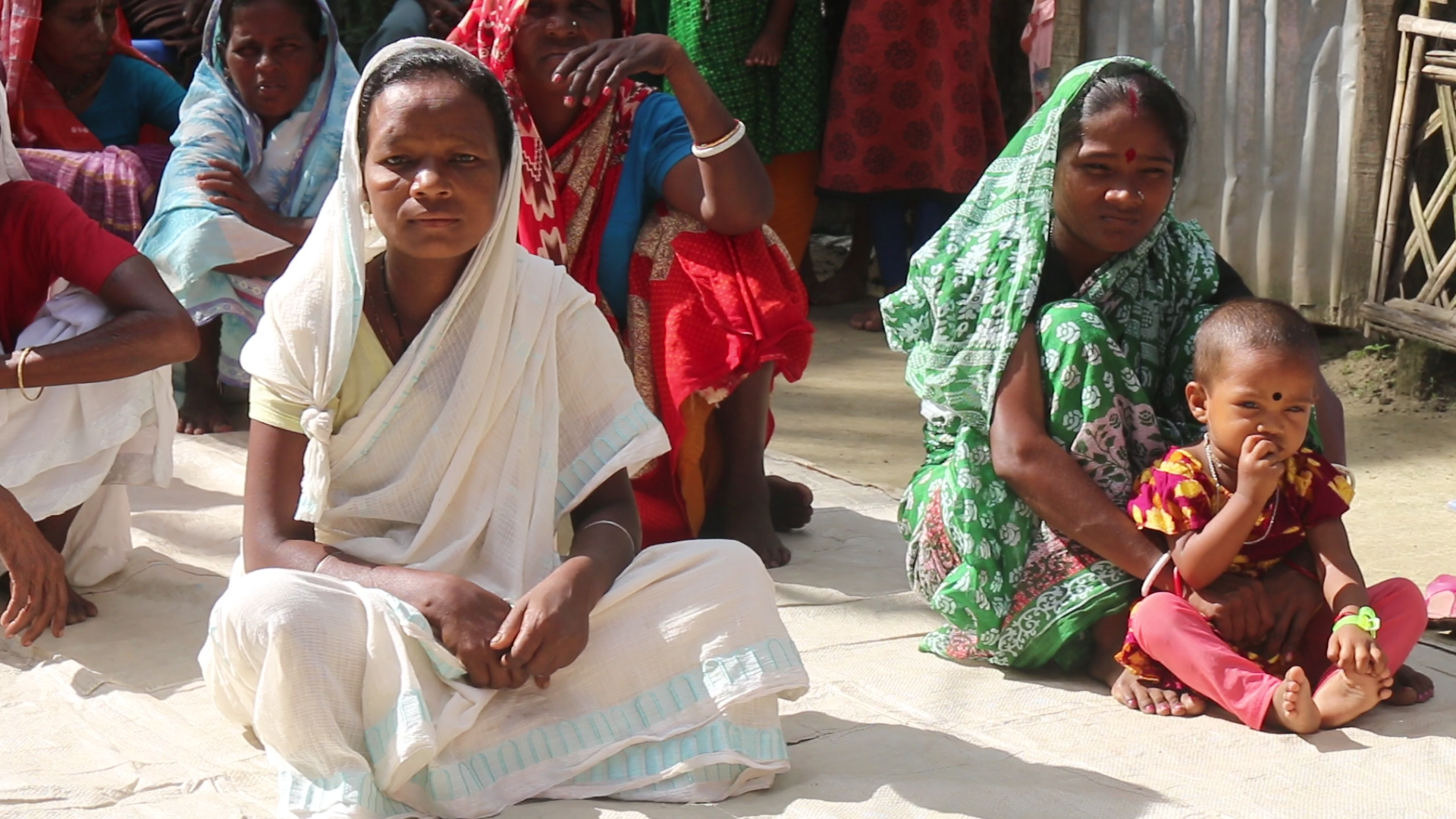
They had to buy foods at high price and some starved while some families had to take only a single meal a day, said Boiragee adding that severe food crisis was the main problem for tea plantation workers thanks to COVID-19 pandemic.
Paresh Debnath, Physiotherapist, a staff of Heed Bangladesh, said tea plantation workers suffered as there was little scope of coronavirus testing facilities in the area.
COVID-19 situation in Bangladesh
Bangladesh reported a total of 423,620 Covid-19 cases and 6,108 deaths until November 11, 2020. Altogether 341,416 patients (80.59 percent) have recovered so far.
According to the Directorate General of Health Services (DGHS), the death rate from Covid-19 in Bangladesh is 1.44 percent.
A number of 13,999 people were diagnosed with Covid-19 in four districts under Sylhet division where most tea gardens are situated. 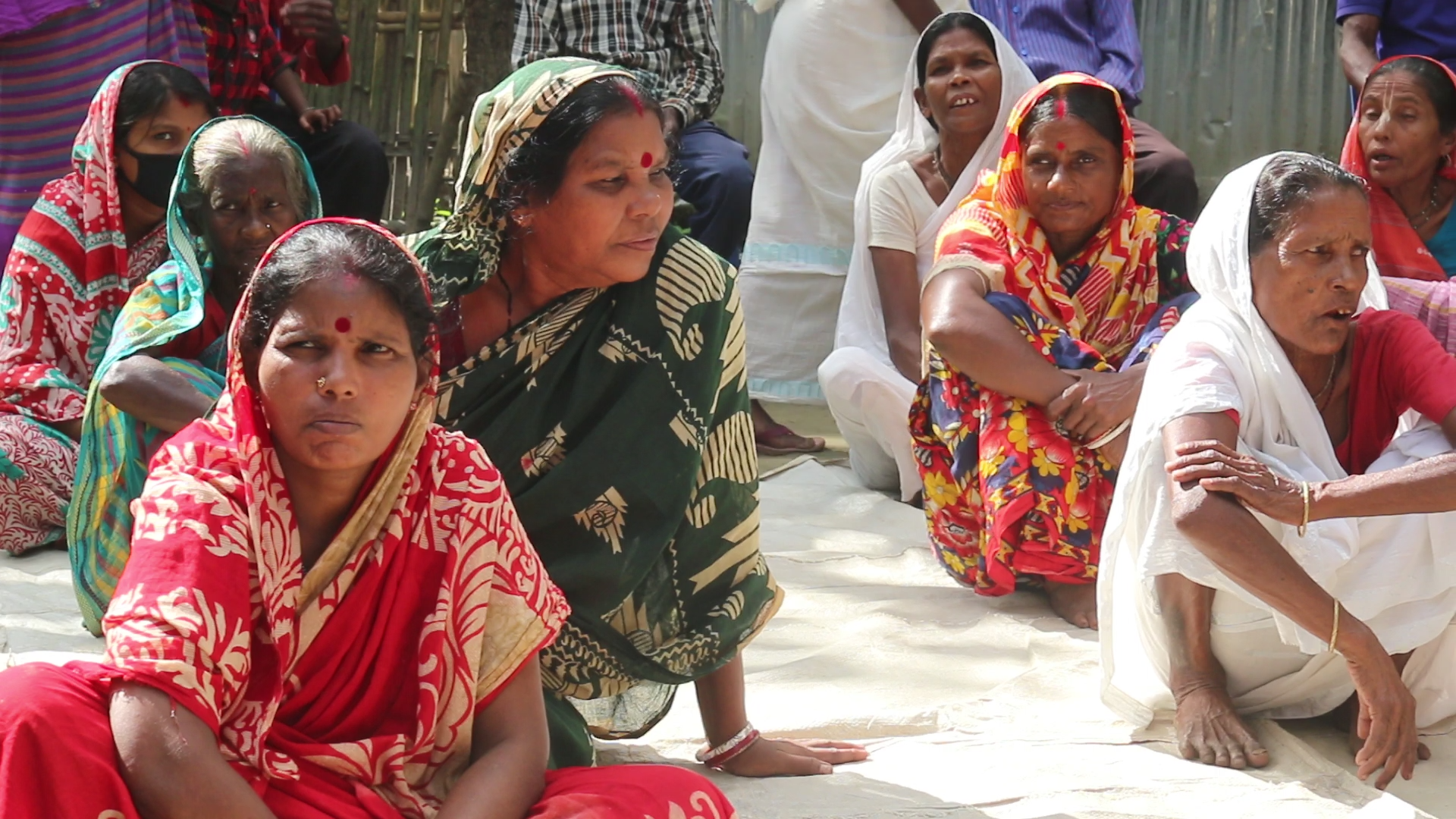
Bangladesh reported its first coronavirus cases on March 8. The cases reached the 300,000-mark on August 26. The first death was reported on March 18 and the death toll exceeded 6,000 on November 4.
Prime Minister Sheikh Hasina on Tuesday said “The Covid-19 pandemic is a stark reminder that no one is safe until everyone is safe. Covid-19 pandemic has taught us that global prosperity is embedded in collective actions, unity and international cooperation.”
Tea Gardens in Bangladesh
The number of tea gardens in Bangladesh is 162. Of those, 135 are in Sylhet division and 23 are in Chittagong division, while 4 gardens have been developed in Rangpur division.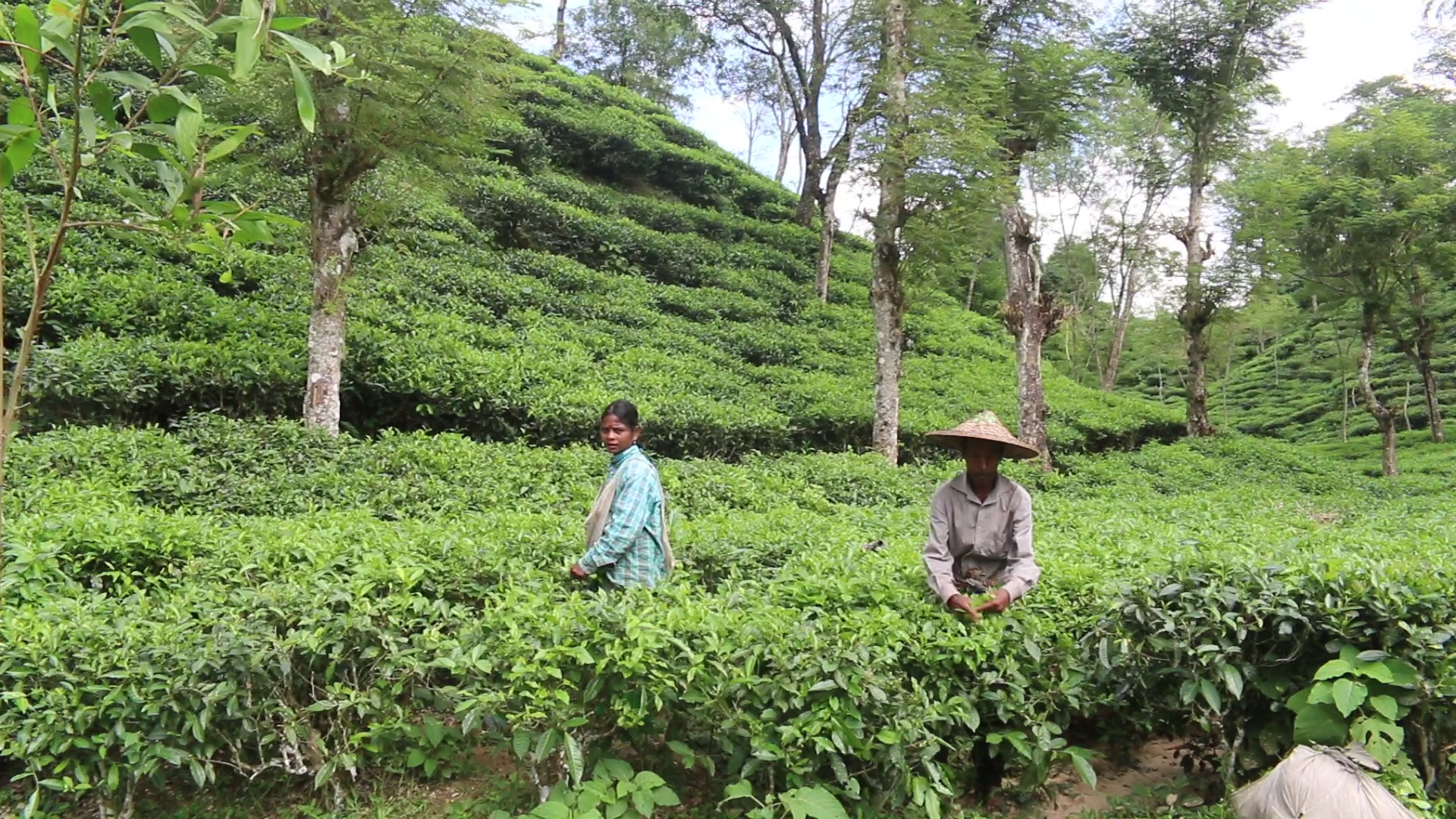
The tea estates in Bangladesh annually produce about 59 million kg of tea. In 2000, Bangladesh occupied 9th position among the 30 tea producing countries of the world, but in 2008 it downgraded to the 11th position.




















